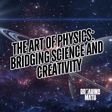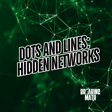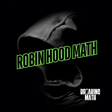Introduction to Measurement Importance
00:00:00
Speaker
Welcome back to Breaking Math. I'm your host, Autumn Phineff, and today we're talking about something so fundamental that we often take for granted measurements. From the seconds ticking on your clock to the weight of your morning coffee, measurements shape every aspect of our daily lives.
Why Standardization Matters
00:00:18
Speaker
have you ever stopped to wonder what if different places use different definitions for the same measurement? What if a kilogram in one country wasn't the same as a kilogram in another? Or even worse, what if a second wasn't a second everywhere?
Series Overview: NIST's Role in Measurement Standards
00:00:35
Speaker
we're diving into the fascinating world of measurement, how we measure things, and why we need precise international standards, what happens when things go wrong.
00:00:45
Speaker
And excitingly, this episode is part of a mini-series where we have had the opportunity to chat with some amazing scientists from the National Institute of Standards and Technology, or NIST.
00:00:58
Speaker
NIST is one of the world's leading organizations in defining and maintaining measurement standards, and will be featuring their expertise throughout this series. So let's
Understanding the International System of Units (SI)
00:01:17
Speaker
Let's start with the basics. A measurement is a way of quantifying the world around us. It allows us to assign numbers to properties like length, weight, or temperature so we can compare them.
00:01:30
Speaker
Seems simple enough, right? But measurement is more than just using a ruler or stopwatch. It's a fundamental part of how we communicate scientific discoveries, build technologies, and even conduct business. Imagine if everyone defined measurements differently. What if one scientist's meter was slightly longer than another?
00:01:51
Speaker
chaa The solution? Standards. And that's where the International System of Units, or SI, comes in. The s SI system is a globally agreed-upon set of measurement units.
00:02:03
Speaker
It includes seven base units. The second time, the meter length. The kilogram mass, the ampere, electric current, the Kelvin, temperature, the mole, the amount of substance, and the candela, luminous intensity. These form the foundation of all science and engineering.
Historical Measurement Errors and Their Impact
00:02:24
Speaker
These units are not arbitrary. Take the second, for example. You might think of a second as just 1 60th of a minute, but the SI system defines it much more precisely.
00:02:36
Speaker
second is the time it takes for cesium-133 to oscillate 9,192,631,770 times. This level of precision is critical for things like financial transactions, and
00:02:46
Speaker
thirty one thousand seven hundred seventy times just level of precesion critical for things like gps financial transactions and internet synchronization.
00:02:57
Speaker
Now, what happens when measurements aren't standardized? History has given us some costly lessons. One of the most famous cases is the Mars Climate Orbiter disaster of 1999. NASA engineers used metrics for calculations, but one of their contractors used imperial units, pounds instead of newtons.
00:03:21
Speaker
The result? A $125 million dollars spacecraft burned up in the Martian atmosphere because of a simple measurement mismatch. Another example, in 1983, an Air Canada flight nicknamed the Gimli Glider ran out of fuel mid-flight because fuel calculations were done using pounds instead of kilograms.
00:03:44
Speaker
Thankfully, the pilots pulled off a miraculous unpowered landing, but it was a terrifying reminder of why standards matter.
NIST's Contributions to Precision and Atomic Clocks
00:03:53
Speaker
Now let's talk about NIST.
00:03:55
Speaker
The National Institute of Standards and Technology is a US government agency responsible for maintaining and improving measurement standards. NIST ensures that everything from timekeeping systems that synchronize the internet to the precise measurements used in pharmaceuticals is accurate and reliable.
00:04:15
Speaker
NIST scientists work on some of the most cutting edge advancements in measurement science. For example, they're improving atomic clocks to measure time more accurately than ever before, down to the billionth of a second.
00:04:28
Speaker
This level of precision helps with everything from deep space exploration to the synchronization of financial transactions. Over the next few episodes, we'll be talking to experts from NIST who are working on various aspects of measurement science, including quantum computing, time, and fire science.
Evolving Definitions: The Kilogram and Planck's Constant
00:04:49
Speaker
tuned for interviews and deep dives into some of their groundbreaking research. Now, measurements are still evolving if you didn't know. In 2019, the definition of a kilogram was officially changed.
00:05:03
Speaker
Instead of being used on a physical metal cylinder in France, it is now defined using Planck's constant, a fundamental constant of physics. This shift ensures that our measurements stay precise no matter where or when you are in the universe.
00:05:20
Speaker
As technology advances, we're pushing measurements to new frontiers. Quantum computing, ultra-precise atomic clocks, and even a question of what is life.
Everyday Impacts of Measurement Standards
00:05:33
Speaker
The future of measurement is bright, and the more precise we get, the more our world and maybe even the universe will make sense.
00:05:41
Speaker
But measurement isn't just for scientists. It affects you in ways you might not even realize. The food you eat, the gas in your car, the devices you use.
00:05:52
Speaker
Every single one of them relies on precise measurement standards. Even timekeeping, which seems so natural to us, is carefully regulated using atomic clocks and synchronized worldwide.
00:06:04
Speaker
So the next time you set your watch, weigh some ingredients or check your car's speedometer, Take a moment to appreciate the vast interconnected system of measurements that keeps our world running smoothly.
00:06:17
Speaker
Standardized measurements is one of the unsung heroes of modern life, and it's what makes everything from science to trade to space exploration possible.
Looking Ahead: Future Topics on NIST Research
00:06:28
Speaker
forget, this episode is just the beginning of our mini-series that introduced you to NIST. We'll be bringing on real scientists from NIST to talk about their work from cutting-edge atomic clocks to how measurements of radiation affects food.
Engagement and Participation Encouragement
00:06:45
Speaker
If you have any questions about measurements, feel free to tweet us BreakingMathPod on X, and we might even ask them in our upcoming interviews.
00:06:56
Speaker
So if you've enjoyed today's little mini episode, don't forget to subscribe to Breaking Math. You can also support the show by sharing it with your friends and following us on social media.
00:07:07
Speaker
Until next time, keep questioning, keep learning, and keep measuring.




















